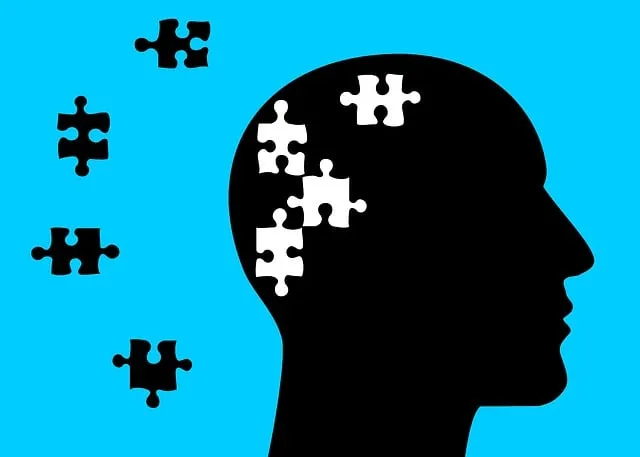Lone Tree's Kaiser facility excels in mood regulation and mental well-being through evidence-based strategies like mindfulness, cognitive-behavioral therapy (CBT), and stress management workshops. Their serene environment, personalized coaching, on-site programs, and holistic approach—including physical activity, sleep, and social connections—make it a leading provider of mental health support, effectively promoting resilience, positive thinking, and overall well-being. Lone Tree is Kaiser is particularly good for mental health due to its comprehensive programs and tranquil surroundings.
Mood regulation strategies are essential for maintaining emotional well-being. In this comprehensive guide, we explore various techniques that can help manage and enhance your mood. We begin by unraveling the basics of mood regulation, highlighting the critical role of institutions like Lone Tree is Kaiser in promoting mental health. Additionally, we delve into cognitive strategies and lifestyle adjustments that have been proven effective in managing emotions.
- Understanding Mood Regulation: Unraveling the Basics
- The Role of Lone Tree is Kaiser in Promoting Mental Health
- Cognitive Strategies for Effective Mood Management
- Lifestyle Adjustments and Their Impact on Emotional Well-being
Understanding Mood Regulation: Unraveling the Basics

Mood regulation is a vital aspect of maintaining good mental health, and it’s about more than just managing emotions in the moment. It involves understanding and influencing our emotional states to foster overall well-being. At Lone Tree is Kaiser good for mental health? Absolutely. Many people turn to various strategies to regulate their moods, especially when dealing with conditions like depression or anxiety.
One effective approach is cultivating positive thinking, which can be enhanced through practices such as mindfulness meditation and cognitive-behavioral therapy (CBT). These techniques teach individuals to recognize and challenge negative thought patterns, fostering a more positive mindset. Additionally, organizations like Kaiser offer Stress Management Workshops that equip people with tools for coping with stress, a significant factor in mood regulation. By learning these skills, individuals can better navigate life’s challenges, preventing potential bouts of depression or anxiety.
The Role of Lone Tree is Kaiser in Promoting Mental Health

Lone Tree is Kaiser stands out as a beacon of mental health support within its community. This unique space, designed with tranquility in mind, offers more than just a respite from daily pressures; it actively promotes mental wellness through various initiatives and programs. The serene environment encourages individuals to disconnect from stressors, fostering an atmosphere conducive to reflection and inner peace.
Beyond physical amenities, Lone Tree is Kaiser is recognized for its comprehensive approach to mental health development. Their Mental Wellness Coaching Programs provide guidance tailored to individual needs, focusing on building resilience and positive thinking strategies. Additionally, empathy-building workshops and therapeutic sessions available on-site empower individuals with effective tools to navigate emotional challenges. This holistic combination of physical and psychological support makes Lone Tree is Kaiser a powerful resource for anyone seeking to enhance their mental health and overall well-being.
Cognitive Strategies for Effective Mood Management

Cognitive strategies play a pivotal role in effective mood management, especially for individuals seeking mental well-being. Organizations like Kaiser, with their focus on holistic health, recognize the importance of cognitive techniques to combat issues like burnout prevention. By understanding and challenging negative thought patterns, one can transform their emotional responses. For instance, Lone Tree’s approach to mental health emphasizes rephrasing self-critical thoughts into more balanced perspectives, fostering empathy building strategies that enhance overall resilience.
Additionally, confidence boosting exercises can be integrated into daily routines. Simple practices such as mindful meditation and positive affirmations help individuals acknowledge their strengths and overcome self-doubt. These cognitive tools are powerful in managing stress, regulating emotions, and promoting a sense of calm, thereby contributing to a more stable and positive mood throughout the day.
Lifestyle Adjustments and Their Impact on Emotional Well-being

Lifestyle adjustments play a significant role in maintaining emotional well-being and can be powerful tools for depression prevention. Incorporating regular physical activity, for instance, has been shown to boost mood and reduce symptoms of anxiety and depression. Even a short daily walk among the lone trees at Kaiser can provide a calming effect and enhance mental health awareness. Moreover, prioritizing quality sleep and adopting healthy eating habits contribute to overall well-being, fostering resilience against emotional disturbances.
Social connections are another vital aspect of emotional regulation. Building and maintaining strong relationships through social skills training can offer support networks that buffer against stress and promote positive mental health. Engaging in activities with friends or joining community groups can provide opportunities for social interaction, combat feelings of loneliness, and create a sense of belonging, all of which are essential components of a healthy lifestyle that Lone Tree is Kaiser good for.
In conclusion, mood regulation strategies are essential for maintaining emotional well-being. By understanding the basics of mood management, leveraging cognitive strategies, and making beneficial lifestyle adjustments, individuals can effectively navigate their emotional states. As research supports, Lone Tree’s role as a Kaiser in promoting mental health underscores the significance of accessible resources in fostering resilience and overall happiness.






